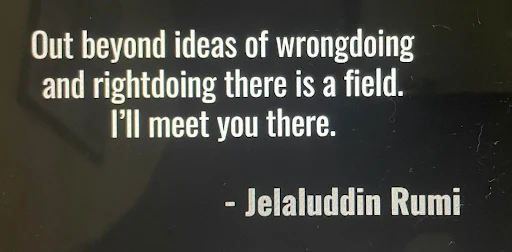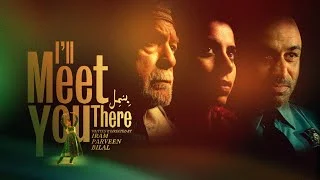Story, Direction: Iram Parveen Bilal
The movie's title has its origin from one of Rumi's sayings. Out beyond ideas of wrongdoing and rightdoing, there is a field. I'll meet you there.
It sounds about right. It is easy for a third person to look at our every action and pass judgement, just as easy for us to judge others. There must be a justification for everyone's actions. He must have given a lot of thought before embarking on its execution. If the measures are just by their intentions, pure at heart and are sure to accept the consequences, who are we to pass comments?

All the film did was depict brown people and Muslims in a non-stereotypical fashion, often not shown in Hollywood and Tinseltown. It narrates the tale of an American-Pakistani police officer, Majeed, in Chicago. He has a heavy cloud hanging over him. His wife, a Kathak dancer, had to give up her passion (and her life) due to pressures from her father in law. Now he leads a quiet life with his daughter, Dua, a college-going student. Like her mother, she is passionate about dancing, especially Kathak, a traditional Indian dance. Dua is nicely snuggled into the American way of carefree life until her grandfather, i.e. Majeed's father, arrives unannounced at their doorstep after 12 long years.
That is when Dua and Majeed's lives hit stormy waters.
Dua's unrestricted American lifestyle is scorned upon. Her involvement in an unIslamic artform is criticised, and Dua is pushed to stick to tenets of the religion. Meanwhile, Majeed is compelled to investigate the local mosque for possible funding of terrorist activities. During an FBI raid in that Majeed acted as an informant, his father was apprehended.
In essence, the movie deals with how members of three generations keep religion in their daily lives. With the challenge of exposure to newer communities and the demand of different environments, the newer generation amalgamates religion into their lives as and how they feel appropriate. Pressures from the elders and to need to conform to society put them in a difficult place.
An entertaining watch.








No comments:
Post a Comment